Pouvoir is an elementary French verb meaning “to be able to.” It’s an irregular verb, which means it’s not conjugated like most other verbs ending in -ir.
Moreover, Do French people say puis je? “Puis-je” – Extremely Formal and Nowadays Outdated. In extremely formal and old-fashioned French, we used to say: “puis-je”.
What is the difference between Je peux and Je puis? Je peux becomes Puis-je (Can I?) in questions where the subject and verb are inverted (we can’t write or say Peux-je). This form of the verb comes from an older style of conjugating the verb pouvoir.
then Why does peux become puis? Hi juliestarling, puis is an old conjugation form of the verb pouvoir (not “pouvre” ;)). => peux form can’t be used: “peux-je” is plenty wrong in FR. => peux form can be used.
What do the French call a bathroom?
Note that the term les toilettes referring to the bathroom is always plural. You may also use the word les cabinets. If you do, you’d say, “Où sont les cabinets, s’il te plaît,” but it’s a bit old-fashioned.
How do you say January in French?
Do the French say je voudrais? The only people you’ll hear using “voudrais” these days are foreigners eager to put their high school/college/Duolingo French to good use. … In proper written French, the ne is definitely obligatory, so be sure you’re only using this while speaking.
What is pouvoir? Pouvoir is a very common French verb with irregular conjugations and an unusual relationship to some of its English equivalents. * Pouvoir generally means “can” or “to be able,” but it’s a bit more complicated in certain tenses.
Can I help you French?
Originally Answered: What is the translation of “may I help you” to French? You can say “how can I help you”: Comment je peux t’aider? Comment je peux vous aider?
What tense is Puisje?
| Tenses – indicative | ||
|---|---|---|
| Present | Imperfect | |
| 1st Singular. | je peux or je puis | je pouvais |
| 2nd Singular | tu peux | tu pouvais |
| 3rd Singular | il peut | il pouvait |
How do you invert je in French? To form inverted questions in French, you simply place the subject pronoun (je, tu, nous, vous, ils, elles) after the verb, and insert an hyphen in-between.
How do you invert Il ya? Note: The only correct inversion spelling is y a-t-il, with exactly two hyphens and no apostrophes. Please avoid y-a-t-il, y-a-t’il , y a-t’il , y a-til, y a til, etc. To use il y a in a negative construction, place n’ (why not ne?) in front of y and pas after a.
What is French inversion?
In French, the normal order of words is subject (noun or pronoun) + verb: Il doit. Inversion is when the normal word order is inverted to verb + subject and, in the case of a pronoun being inverted, joined by a hyphen: Doit-il. There are a number of different uses of inversion.
What does ce soir on Livre mean in French?
during the evening of today.
How do you say please can I go to the toilet in French? You can say “Puis-je aller aux toilettes ,” or “Pourrais-je aller aux toilettes ?” or “Est-ce que je pourrais aller aux toilettes ?”.
How do the British say bathroom?
What are the 4 seasons in French?
Seasons in France
In France, there are four seasons: winter, spring, summer, and fall, or autumn, as it is sometimes called, after the Latin autumnus. The French use the word automne, which has the same origins, as well as hiver, printemps, and été to designate the three other seasons.
What are some French greetings?
Informal and Formal French Salutations
- Bonjour – Good morning / hello.
- Enchanté(e) – Nice to meet you.
- Bonsoir – Good evening / hello.
- Salut – Hi.
- Coucou – Hey.
- Ça fait longtemps, dis donc – Long time, no see.
- Âllo – Hello.
- Ça va? – How are you?
How is February pronounced?
In the United States, the most common pronunciation is feb-yoo-air-ee. Both Merriam-Webster and American Heritage dictionaries consider the common pronunciation correct, along with the less common, more traditional standard feb-roo-air-ee. This gets fans of the traditional standard all worked up.
Is Je voudrais polite? Now you know how to use the common and very useful phrase “Je voudrais…” when making polite requests in French.
Is Je voudrais rude?
“Je voudrais” is more polite and formal, and is acceptable in any restaurant situation.
Is Je veux polite? Always “Je voudrais” when you want something. It’s more polite and acceptable. “Je veux” is used when you talk with friends. 3.
Is pouvoir irregular? The French verb pouvoir means “to be able [to do something],” or more simply, “can” and “may.” It’s an extremely common verb in French and has an irregular conjugation that can be tricky for non-native speakers. For this conjugation, it’s best to learn it by heart.
Is prendre irregular? Forms of Prendre
This is because prendre is an irregular verb in its conjugation. This verb is irregular because the je, tu, il/elle/on forms all keep the ‘d’ from the infinitive prendre, but the nous, vous, and ils/elles forms drop the ‘d,’ and the ils/elles form even adds an extra ‘n’!
WHAT IS A in France?
Using a in French
In French, there are 3 ways of using the indefinite articles “ a,” “ an,” “ some” or “ several.” A or An + masculine noun = un. A or An + feminine noun = une. Some or Several + any plural noun = des.

